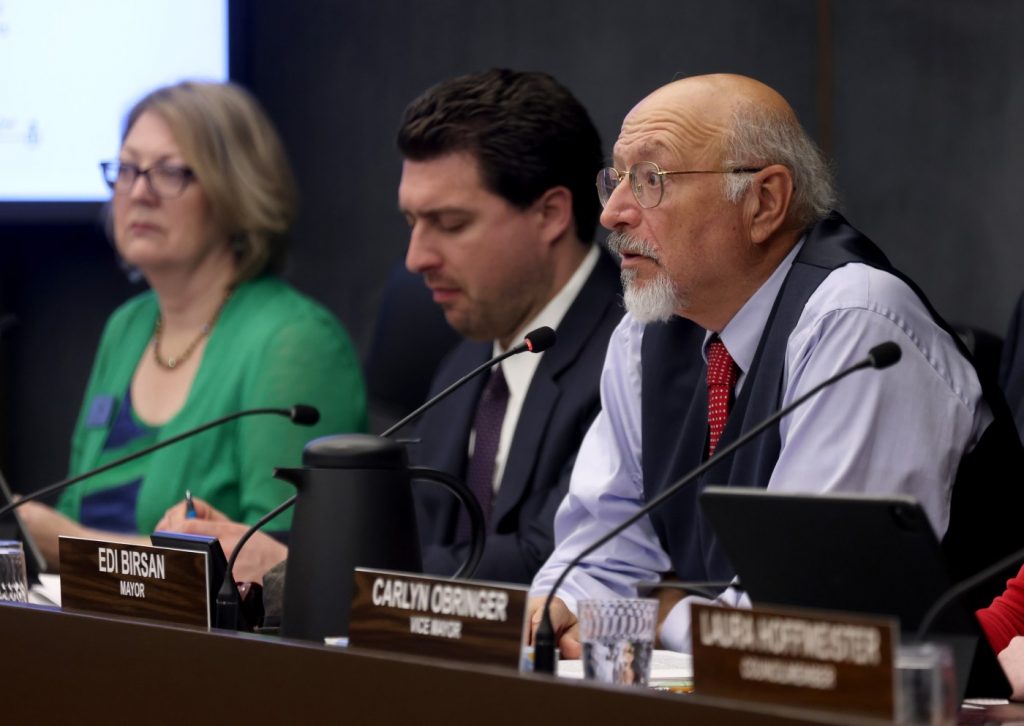After a warning from state regulators, the Concord City Council this week reversed its decision to effectively block an affordable housing project, which councilmembers had said would concentrate too many low-income apartments in the city’s downtown core.
Last month, the council denied the project developer’s request to accept up to $90 million in state financing, jeopardizing the planned 183-unit complex. Councilmembers instead encouraged Idaho-based Pacific West Communities to develop the complex as mostly market-rate apartments, which wouldn’t receive subsidies.
A few weeks later, however, the state housing department wrote to the suburban East Bay city explaining that by halting the project, the council may have violated fair housing regulations and the city’s state-mandated commitment to approve affordable housing. The agency reminded local officials that it has the power to enforce state housing laws, evidenced by a string of recent lawsuits it filed against Southern California cities, including Huntington Beach, Anaheim and Fullerton.
State regulators have sent similar warning letters to other Bay Area cities, notably Woodside, which tried to skirt a recent state housing law by declaring the uber-wealthy Silicon Valley suburb a mountain lion sanctuary.
At a brief special meeting on Monday — the deadline for Pacific West to get approval for the financing — the council changed course and unanimously voted to greenlight the subsidies. While councilmembers had to OK the state tax-exempt bonds, which give developers access to low-interest construction loans, the financing comes at no cost to the city.
In an interview, Mayor Edi Birsan said the decision to change his vote had nothing to do with the state’s letter and maintained the city had the authority to reject the financing.
“I was not concerned one bit about a legal confrontation,” Birsan said, emphasizing that he was speaking only for himself and not other councilmembers.
Birsan described the council’s initial move to block the subsidies as part of a negotiation with the developer that included securing “things that we needed to get confirmed in writing.” Birsan said his main concern was Pacific West would return to the council asking for more taxpayer-supported financing, but the developer convinced him that wouldn’t be necessary. He declined to say why other councilmembers changed their minds.
Councilman Dominic Aliano, whose district includes the planned project at 1650 Ashbury Dr. near the Concord BART station, did not immediately respond to questions about why he flipped his vote.
Before initially denying financing, Aliano and other councilmembers argued allowing more low-income housing in the area would risk depriving the neighborhood of a healthy mix of residents from all backgrounds. As part of their rationale, councilmembers pointed to the state’s recent effort to compel cities to plan for more affordable housing in wealthier neighborhoods — an argument that didn’t appear to convince state regulators.
Unlike at that earlier meeting, councilmembers voted to approve the financing Monday without much discussion.
Related Articles
California home prices hit another record high at $908,040
Bay Area voters to decide on $20 billion affordable housing bond in November
Livermore residents may not get to vote on controversial downtown housing project
California lawmakers abandon attempt to repeal law requiring voter approval for some public housing
San Jose housing tower goes up for sale amid wobbly residential market
Brad Dickason, a San Francisco-based developer partnering with Pacific West on the project, welcomed the council’s decision “to recommit themselves to providing housing for all income levels to Concord” in a text message.
Plans for the Ashbury project call for units to be affordable for households earning between 30% and 70% of the East Bay’s typical annual income, between $46,700 and $108,990 for a family of four. Those households would typically pay around 30% of their income on rent.
The council’s reversal comes as the state is requiring Concord to approve more than 5,000 new housing units citywide, with more than half affordable to low- and middle-income residents.
The city is also planning a massive, decades-long redevelopment project at the former Concord Naval Weapons Station that could add more than 12,200 homes, including thousands of affordable units. The long-delayed project has cycled through three developers amid a host of labor disputes, power plays and allegations of backroom deals.


